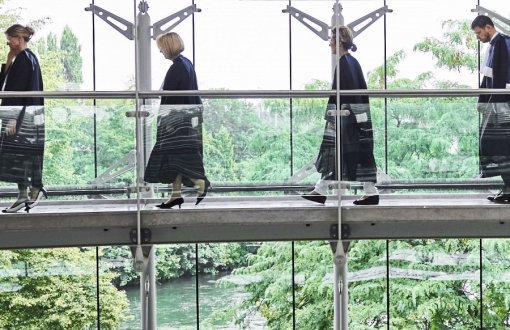ECtHR: Systematic Lawsuits Against Journalists Aim to Cause Fear, Chilling Effect

Click to read the article in Turkish / Kurdish
In a judgement announced today (March 12), the European Court of Human Rights (ECtHR) has concluded that criminal proceedings systematically opened against journalists put pressure on them, make them apply self-censorship and violate freedom of expression.
Giving its judgement regarding the application of Ali Gürbüz, the owner of the then Ülkede Özgür Gündem newspaper, the ECtHR has indicated that though Gürbüz was acquitted in each set of proceedings filed against him, the proceedings in question put pressure on him as a media professional and made him apply some self-censorship.
The ECtHR has further stated that these proceedings were "capable of having a chilling effect on freedom of expression and public debate."
Turkey will pay Gürbüz 3,500 Euro in non-pecuniary damages.
What happened?
A total of seven lawsuits were filed against Ali Gürbüz, the owner of the then Ülkede Özgür Gündem newspaper, due to 11 articles and news reports which were published on the newspaper between 2004 and 2006.
Among the 11 articles and reports subject to lawsuits were also the ones on Kurdistan Workers Party's (PKK) Christmas message and statements of inmates, making a call for the establishment of a dialogue with PKK leader Abdullah Öcalan for a peaceful resolution of the Kurdish question.
In 2007, Gürbüz was sentenced to pay a judicial fine on charge of "publishing the statements of the terrorist organization." The sentence in question was reversed by the Supreme Court of Appeals. Ali Gürbüz was acquitted of all charges pressed against him in 2011.
However, appealing to the ECtHR, Gürbüz stated that "those proceedings had put pressure on him as a media professional on account of their duration and in spite of his acquittal at the end of each set of proceedings."
What does the ECtHR ruling say?
The ECtHR announced its judgement on Ali Gürbüz today.
The court has ruled that Turkey has violated freedom of expression as per the Article 10 of the European Convention on Human Rights and sentenced Turkey to pay Gürbüz 3 thousand 500 Euro (approx. 21 thousand 500 Turkish Lira) in non-pecuniary damages.
"Anti-Terror Law automatically applied"
In its ruling dated March 12, the court noted that the publications subject to lawsuits in Turkey "consisted of insignificant messages" and indicated that the automatic application of the Anti-Terror Law to any statement regardless of its actual content "was capable of having a chilling effect on freedom of expression and public debate."
"It is a form of harassment such as to intimidate"
The court further said, "Even though the applicant had ultimately been acquitted, the proceedings had been prolonged for lengthy periods during which the fear of being convicted had inevitably put pressure on Gürbüz, making him, as a media professional, apply some self-censorship."
Within this context, the court noted that the number and length of proceedings "could be regarded as a form of harassment such as to intimidate and discourage him from publishing articles."
"Interference in freedom of expression"
In its judgement, the court also indicated that though Gürbüz had been acquitted, the proceedings in question "consisted in themselves of actual and effective constraints" and "put pressure on Gürbüz over a certain period." Accordingly, the court has ruled that "there had been an interference in Gürbüz's right to freedom of expression."
All in all, the court concluded that "maintaining numerous sets of criminal proceedings against Gürbüz did not meet a pressing social need, was not proportionate to the legitimate aims pursued (protection of national security and territorial integrity) and not necessary in a democratic society." (AS/SD)
bianet submits shadow report to UN Human Rights Committee

Imprisoned lawyer exposes use of disciplinary investigations to pressure political prisoners

Tap water ‘smells of bleach’ in Muğla prison

Censorship on a letter from prison describing hunger

Prisoner on hunger strike: 'I am alone without sunlight'





